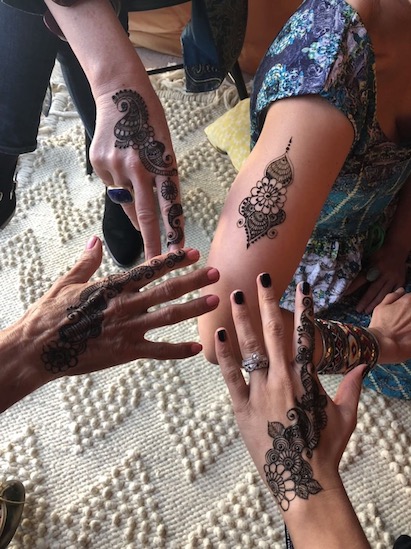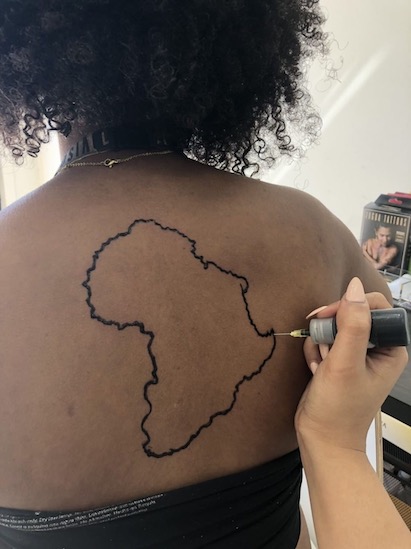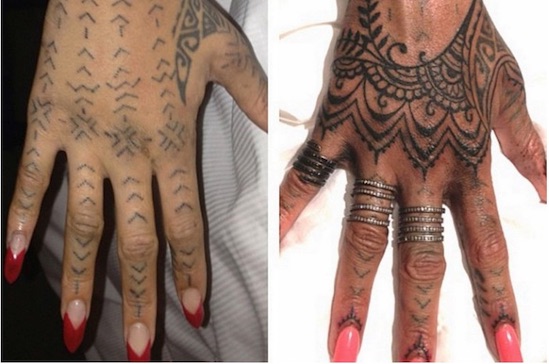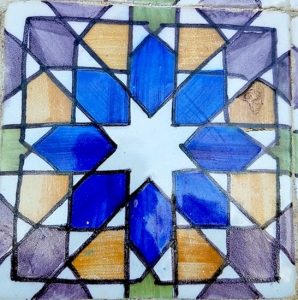We were in the henna business for 12 years before jagua tattoos entered the scene back around 2009. People LOVED henna tattoos, and continue to do so even after all these years, but absolutely everyone wanted to know if we knew of a temporary tattoo that looked like a real tattoo. So when we heard about jagua, I was thrilled.
I expected people to use jagua to make tribal-type tattoos, or figurative tattoos, like barbed-wire armbands or representational things, like this map of Africa, or symbols, and, well, just more of the types of designs you see on people who get permanent tattoos.
But to my surprise, so often, people use jagua to create henna-like designs, as in floral vines, and lacey patterns. Who would have thought?
Maybe Rhianna had a hand in this (excuse the pun!). Remember she first got a very tribal permanent tattoo done on her hand, which in my opinion, and I guess in hers, wasn’t that hot. She later decided to try to fix it and she went with a decidedly henna-inspired design. It wasn’t long after that I started seeing jagua used for henna tattoo-like patterns.
I guess people can recognize a good thing when they see it! The simple beauty of henna most superbly translates regardless of the medium. And I have to admit that, although my first love is henna, that dark, bluish-black jagua color on the skin isn’t too shabby, either. Wait, strike that. It’s absolutely gorgeous.
So who cares what kinds of designs you do with jagua? Why limit yourself? The medium doesn’t really matter, as long as you end up with kick-ass body art!
Photos and designs courtesy of Nadia Ali @hennadilse






Comments
How do you feel about people who aren’t from these cultures using henna and jagua for fun despite their cultural history? I love them both, own my own jagua kit and even worked a henna stand at my school’s day of the dead festival (that was a little rough, not gonna lie). I have done a lot of research on the tradition and it’s so rich and beautiful, but I can’t help but feel guilty every time I use it. I don’t want to disrespect or exploit anything, but I’m not sure if using it is cultural appropriation. How do you feel?
Author
Hello! I’m sorry I never saw this message for some reason. Here I am responding 3 YEARS LATER!! Regarding your question on cultural appropriation, in my experience, the people of Morocco and India are thrilled to see their beautiful artform being embraced by the west. They are in no way insulted by it at all. Enjoy your body art!